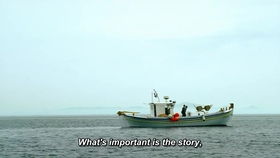The Art of River Fishing: Tips and Techniques for Perfect Bait Preparation
Fishing, an age-old pastime, has always been a source of relaxation and enjoyment for anglers around the world. Among the various types of fishing, river fishing stands out for its dynamic environment and the challenge it presents to both beginners and seasoned anglers. One of the key elements that can make or break a fishing trip is the preparation of the bait. In this article, we will delve into the art of river fishing, focusing on the essential tips and techniques for perfect bait preparation.
Understanding River Fish Behavior
Before we dive into the specifics of bait preparation, it's crucial to understand the behavior of fish in a river environment. Rivers are dynamic and ever-changing, with currents, depths, and substrates that can significantly impact fish behavior. Here are a few key points to consider:
Currents and Tides: Rivers are constantly moving, and the speed and direction of the current can greatly influence where fish will be found. Fish often congregate in areas where the current is slower, such as behind rocks or in deeper pools.
Substrate: The type of bottom material in a river can also dictate where fish will feed. For instance, sandy bottoms may attract species like catfish, while rocky substrates are more likely to hold bass and trout.
Temperature: Water temperature is a critical factor in fish behavior. Most fish are most active in water temperatures ranging from 50°F to 70°F (10°C to 21°C).
Food Sources: Understanding what fish in your chosen river are feeding on is essential. This can vary widely, from insects and crustaceans to small fish and plants.

Choosing the Right Bait
Once you have a basic understanding of river fish behavior, the next step is to choose the right bait. Here are some popular options:
Live Bait: Live bait, such as worms, minnows, and leeches, can be highly effective. The key is to use the right type of live bait for the species you're targeting.
Artificial Lures: Artificial lures, like spinners, jigs, and flies, can be used to mimic the movement of natural prey. They are particularly useful in areas where live bait is scarce or prohibited.
Natural Bait: Natural baits like corn, peas, and cheese can be effective, especially for species like catfish and carp.
Perfecting Bait Preparation
Once you've chosen your bait, the next step is to prepare it properly. Here are some tips for each type of bait:
Live Bait: Keep live bait fresh by storing it in a cool, well-aerated container. For worms, a simple container with damp paper towels works well. Minnows and leeches can be kept in a bucket of water with an aerator.
Artificial Lures: Ensure that your artificial lures are in good condition. Check for any damage and replace or repair as necessary. Adjust the weight and size of your lures to match the conditions of the river.
Natural Bait: Natural baits like corn and peas can be soaked in water for a few hours to make them more palatable to fish. Cheese can be cut into small cubes or strips.
The Importance of Fish Food in Bait Preparation
Fish food plays a crucial role in bait preparation, as it can enhance the attractiveness of your bait to fish. Here are some tips on how to use fish food effectively:
Scent: Adding a fish food scent to your bait can increase its appeal. Options include fish oil, blood, or even commercial fish food scents.
Consistency: Ensure that the consistency of your bait is suitable for the species you're targeting. For example, a thick paste may be better for bottom-feeding fish like catfish, while a more natural, less processed bait may be better for species like bass.
Presentation: How you present your bait is as important as the bait itself. For example, a wiggling worm on a hook can be more enticing than a static piece of cheese.
Final Thoughts
River fishing is a rewarding and challenging activity that requires patience, skill, and a deep understanding of the environment and the fish you're targeting. By mastering the art of bait preparation, you can significantly increase your chances of success. Remember to always respect the river and its inhabitants, and practice ethical fishing techniques. With the right approach, you'll be well on your way to becoming a river fishing expert. Happy fishing!












